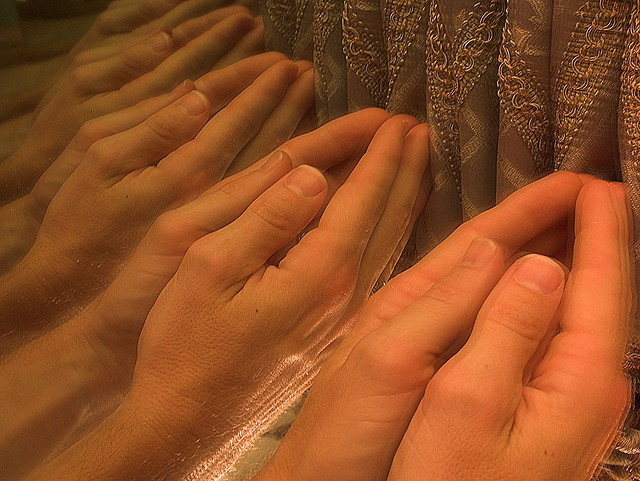My hope when I started my research on prayer was to learn about faith. However, anyone who does experimental research knows that it is a very long road from idea to data. After coming up with our ideas and designing our experiments, the next step in our process was to get approval from an independent review board to run experiments in which participants come into our lab and pray. The board is there to look out for our participants’ well-being, which is an important and necessary job. There are some standard issues which they look out for: are we informing participants of the requirements of the experiment; is it clear to them that they can quit at any time without penalty; are there any risks; are participants aware of those risks; etc. We are lucky enough in my department to have a reasonable and smart review board which functions very well. However, because the board is staffed by humans, and because humans are generally reasonable but also imperfect, inconsistent, and unpredictable, the decisions of the review boards are generally reasonable but can also be imperfect, inconsistent, and unpredictable. Some studies which seem like high risk to us fly through the board without issue, whereas other studies which seem innocuous to us get a great deal of consideration. Those inconsistencies are to be expected in any such process.
The first time we submitted a study in which participants would be asked to pray we got a lot of feedback and concern from the Board. Sure, asking people to pray seems innocuous to me in comparison with studies that expose people to disturbing images, ask them to recall stressful events, remind them of their insecurity about their romantic relationships, and threaten their self-esteem—but the process is variable, remember? Thus, one over-cautious review from the Board didn’t cause me pause. However, when a pattern emerged, the scientist in me took note. And a pattern has emerged. A significant portion of reviewers have had substantial concerns about asking participants to pray in the lab. One reviewer asked us to limit our sample to only religious people. He (or she-I don’t know) thought it might be offensive to non-religious people to be asked to pray. So we limited our sample to only religious people. Then another reviewer was concerned that even with our limits, some participants might be traumatized by the prayer manipulation. He or she felt that it would be unethical to ask people who don’t pray to pray in the lab and suggested that we warn people before the study even starts that we will be asking them to pray. That way if someone finds this so offensive, he or she can quit before the experiment starts and thus never have to be in the position of being asked to pray.


